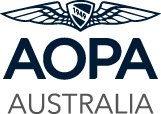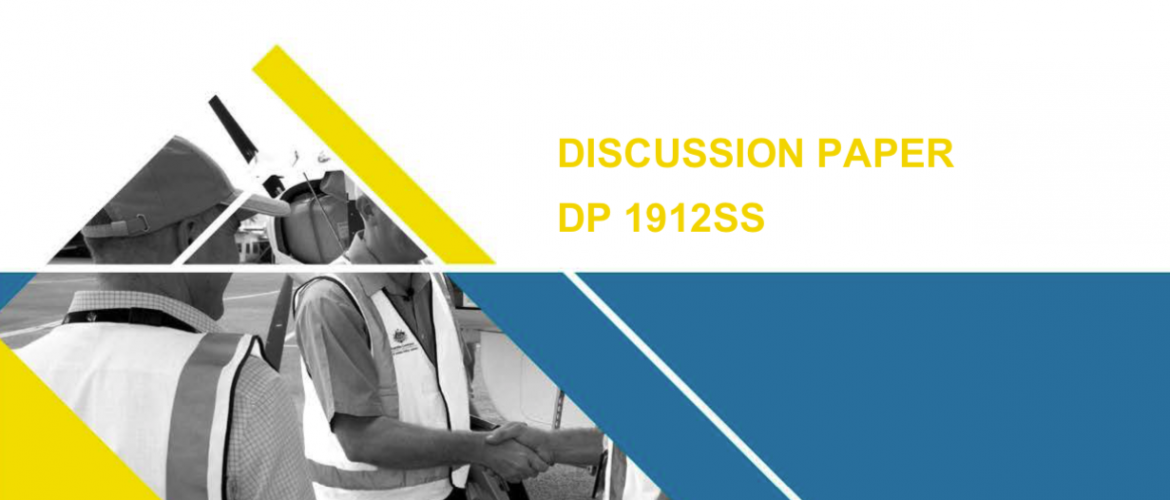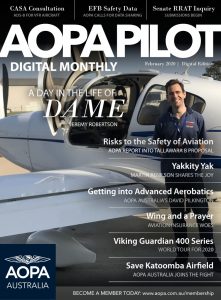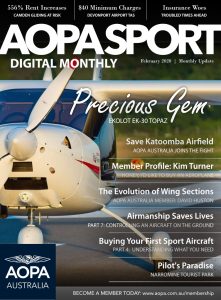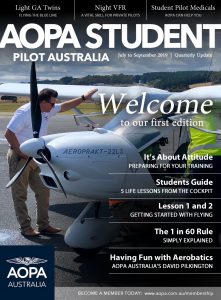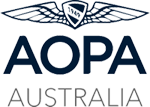The Aircraft Owners and Pilots Association of Australia has responded to CASA Discussion Paper DP1912SS; Maximum take-off weight limit for aeroplanes managed by approved self-administrating aviation organisations (ASAO).
SUMMARY RESPONSE
The Aircraft Owners and Pilots Association of Australia maintains the view that all private recreational pilots should be provided with harmonised access to aviation, without unnecessary cost and restriction.
AOPA Australia supports private recreational pilots – both CASA regulated and those belonging to the Recreational Aviation Australia – having access to a self-certification medical standard, that permits them to operate aircraft with an MTOW of up to 760kgs, outside of controlled airspace, daytime VFR with one passenger onboard.
AOPA Australia believes that the national aviation industry would benefit from harmonising pilot training and licensing standards, improving overall aviation safety and enabling both CASA regulated and Self Administrated pilots to participate without restriction.
AOPA Australia believes that the national aviation industry would benefit from harmonising aircraft maintenance and engineering standards, ensuring that aircraft can be seamlessly registered and maintained under either the CASA regulated or Self Administrated systems.
However, AOPA Australia is genuinely concerned that CASA is misusing their aviation safety regulatory powers, delivering biased dual standards that are undermining successful harmonisation and long-term sustainability of the national aviation industry.
CASA’s function is to set aviation safety standards for the industry as a whole, providing a national regulatory framework that enables all sectors of aviation to participate equally and efficiently.
To this effect; if CASA views that it is safe for private recreational pilots who hold a self-certification medical standard to operate aircraft with a weight of up to 760kgs subject to certain restrictions, then its primary responsibility is to deliver a regulatory framework that permits this activity for the industry use as a whole.
Instead; CASA through DP1912SS are seeking to provide beneficial regulatory reform exclusively to the reported 10,000+ pilot participants of the Recreational Aviation Australia Limited, to the detriment of the broader industry, ignoring the 35,000+ pilots who are licensed and managed under the CASA system.
RECOMMENDATIONS
- Introduce an industry wide private recreational self-certification medical standard, accessible by all aviation participants and self-administrations, subject to necessary restrictions;
- Introduce an industry wide private recreational pilot training and licensing standards, accessible by all aviation participants and self-administrations;
- Introduce an industry wide aircraft maintenance and engineering standards, accessible by all aviation participants and self-administrations;
DISCUSSION PAPER QUESTIONS
1. Are the potential benefits to aviation safety mentioned in the DP likely to be realised by implementing this proposal?
No.
DP1912SS does not propose to introduce industry wide benefits or reform. Instead, it proposes to deliver benefits exclusively to the Recreational Aviation Australia Limited, disadvantaging the 35,000 pilots who operate under the CASA government regulated system.
DP1912SS proposes to reduce competition by introducing dual standards that are designed to help foster a monopoly outcome for the Recreational Aviation Australia Limited.
2. Are the potential benefits to the aviation community mentioned in this DP likely to be realised by implementing this proposal?
No.
DP1912SS does not propose to introduce industry wide benefits or reform. Instead, it proposes to deliver benefits exclusively to the Recreational Aviation Australia Limited, disadvantaging the 35,000 pilots who operate under the CASA government regulated system.
DP1912SS proposes to reduce competition by introducing dual standards that are designed to help foster a monopoly outcome for the Recreational Aviation Australia Limited.
3. Do you consider the overall effect of the proposal on the aviation community to be positive or negative for private recreational aviation?
Negative.
DP1912SS does not propose to introduce industry wide regulation reforms. Instead, it proposes to deliver benefits exclusively to the Recreational Aviation Australia Limited, disadvantaging the 35,000 pilots who operate under the CASA government regulated system.
DP1912SS proposes to introduce dual standards that exclusively benefit the Recreational Aviation Australia, creating an unfair market monopoly.
OPTIONS FOR DISCUSSION
Option 1: Maintain the status quo and make no changes to MTOW limits
AOPA Australia does not agree with Option 1.
Option 2: Amend the MTOW limits and associated matters in CAO 95.55, Part 149 MOS and develop Part 103 and Part 103 MOS to reflect these matters.
AOPA Australia does not agree with Option 2.
Other Option: Provide Industry Wide Standards
If CASA views that it is safe for private recreational pilots to hold a self-certification medical standard, enabling them to operate aircraft with a weight of up to 760kgs subject to certain restrictions, then it’s CASA’s primary responsibility is to deliver a regulatory framework that permits this activity for the industry’s use as a whole;
- Introduce an industry wide private recreational self-certification medical standard, accessible by all aviation participants and self-administrations, subject to necessary restrictions;
- Introduce an industry wide private recreational pilot training and licensing standards, accessible by all aviation participants and self-administrations;
- Introduce an industry wide aircraft maintenance and engineering standards, accessible by all aviation participants and self-administrations.
Click to Download a PDF Copy of the CASA DP1912SS Discussion Paper
[adrotate banner=”3″]
[adrotate banner=”17″]
[adrotate banner=”15″]
[adrotate banner=”16″]
